A cursory glance at the foundation and future of the PPP
The Pakistan People’s Party (PPP) turns 55 today. This year, it is celebrating the foundation day at district and divisional headquarters across country.
Let’s take a look back at the reasons of the party’s formation including its future now in the hands of the third generation - not only in terms of leadership but also diehard followers (or Jiyalas) with its votebank and support intact despite the cruel power games and governance in Pakistan.

One of the three leading political parties in Pakistan, PPP is the oldest among the lot. It was formed more than five decades ago by its charismatic leader and the founder, Zulfikar Ali Bhutto. It is the same Bhutto who gave the country its first-ever consensus-based Constitution in 1973 after the breakup of the country.
Since then, all leading parties in today’s Pakistan and its parliament were created to compete and counter the PPP’s influence. Each time, however, it has engineered a revival to make Pakistan inclusive and egalitarian within the framework of the existing Constitution. .
The PPP was born at a time when the dark shadow of the dictatorship of General Ayub Khan was not only hovering but controlling the country in 1960s. The mercurial rise of Bhutto proved to be the fall of General Ayub. The military man’s might and wrath couldn’t stop Bhutto, still a fledgling at that time, as the shining star on Pakistan’s political horizon. His charima and appeal remains as bright as it was five decades back.
The formal birth of PPP on November 30, 1967, in Lahore marked the formal departure of conventional politics from drawing rooms as was the norm back then, and became accessible to the public .
It was the PPP that laid the foundation of people’s politics which later became its key identity, continuing to this today as the very mark of the Bhuttos.
A decade ago, the PPP restored the 1973 constitution through the historic 18th Amendment in 2010 following broad-based national consensus.
The same Constitution is again under severe threat as it is being sidelined when it comes to holding those accountable who violated it with efforts to recolour and re-tailor as the Constitution as per the needs and tendencies of dictators and their remnants. It is the only and lasting solution for any and all ills that ail our beleagured nation; an essential course-correction of our history.
On the delivery front, it was the PPP that rebuilt Pakistan in the early 1970s after the breakup of East Pakistan, now Bangladesh. The PPP did that through a chain of national projects ranging from huge industrial base to small-scale services initiatives. These initiatives materialized within one term of the then prime minister, Zulfikar Ali Bhutto.
Later, his proud daughter Mohatarma Benazir Bhutto, a two-time prime minister of Pakistan, made her own mark with exclusive initiatives from national security to women empowerment. Her premiership enabled the common people by creating long-lasting inroads into the power corridors.
Her son and sitting chairman of the PPP, Bilawal Bhutto Zardari, has continued the legacy. He has been inspirational and instrumental in the launch of PPP-led Sindh government projects from Thar coal to windmills to electricity generation.
The PPP has created the largest network of free and state-of-the-art hospitals in the province despite resource constraints and illegal cuts by the federal government. This model of Sindh on the delivery front is the best of PPP that has evolved in recent years. It has earned plaudits from the international publications like The Economist and others and could be replicated in the entire country.
Currently, the PPP is a part of coalition government in Pakistan which was formed seven months back after the success of the vote of no confidence against then prime minister Imran Khan and the PTI-led government. The move was followed by the Awami March (people’s march) led by Bilawal Bhutto Zardari from Karachi to Islamabad, culminating at the floor of National Assembly.
With the move, the PPP again proved that it truly believes into the supremacy of Parliament and the Constitution is the only solution for taking the country out of the existing political polarization.
As the youngest foreign minister of Pakistan, Bilawal Bhutto Zardari has proved in the last six months his aptitude for working with coalition partners and taking the country out of diplomatic isolation and back into the mainstream of world politics.
Pakistan is now out of the Paris-based Financial Action Task Force’s FATF’s dreaded ‘grey list’. At the COP27 climate summit in Egypt, the world acknowledged and adopted Bilawal’s call for climate justice in the aftermath of devastating rains and floods during this year’s unprecedented monsoon season.
It was Bilawal and his team that got the world’s attention by presenting the case of climate. The world acknowledged that Pakistan was among the ten worst climate-hit countries while contributing less than one percent to carbon emissions.
On the home front, inflation is getting out of control reminding us of the relevance of PPP’s slogan of five decades ago: roti, kapra aur makaan (food, clothing and shelter).
Until the people get these fundamental essentials of life – food, clothing and shelter - the PPP’s appeal would remain valid and promising considering its track record when it comes to delivery. This makes it the perfect opportunity for the PPP and its young and dynamic chairman to take the lead and steer the country from its existing state where the economy is in doldrums and all national indicators of growth and development are at the wrong end of the graph.
Moreover, political polarization within the country is pushing us to point of no return where even bailout packages from friendly countries or global multilateral agencies would not work. Only a homegrown national leadership could take us out of this morass and lead with dignity and prosperity what Bhutto did in the 1970s or his scion could do now in the 2020s.








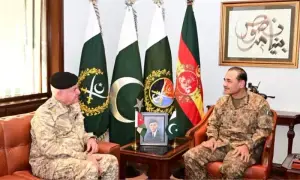
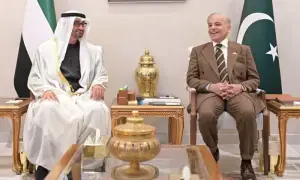
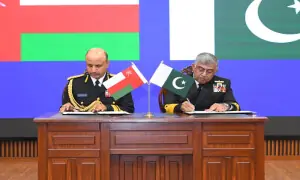
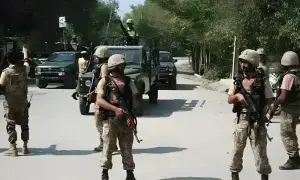
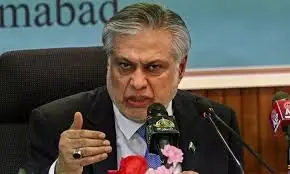
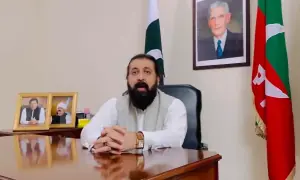
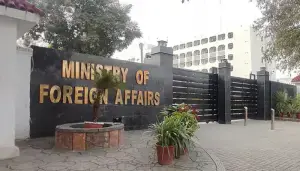
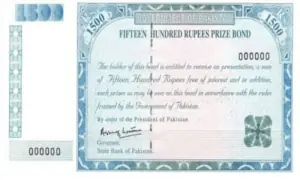
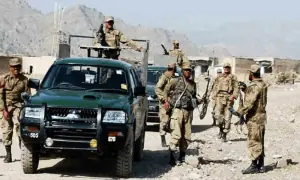
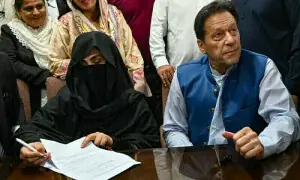
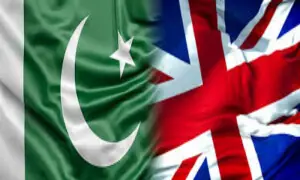
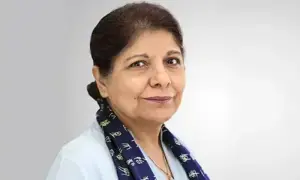
Comments are closed on this story.